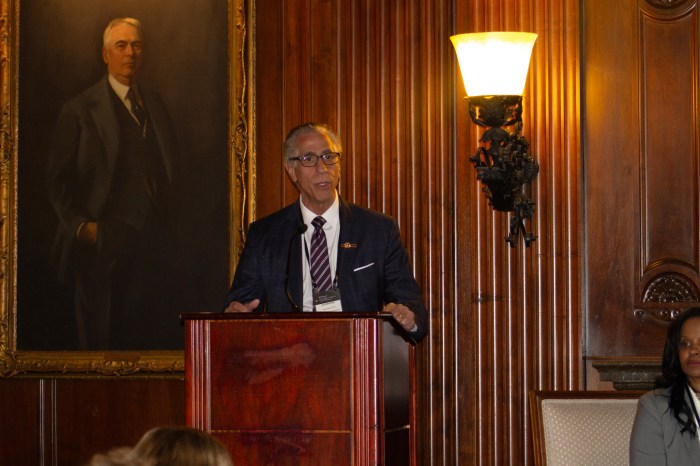Who said quitters don’t win?
Be Smart-Quit Smoking, a smoking cessation program run though the Montefiore-Einstein Cancer Center, offers Bronx residents an enlightening way into leading a healthier lifestyle by quitting an expensive and costly habit.
This program, originally created in 2000, includes eight weekly sessions, offered in English or Spanish, during daytime or evenings, dependent upon demand, covering all areas involved in a typical smokers’ life, including projections of what members are and will be going through.
“I lived in an age where smoking was cool, now we know better,” expressed Betty Jones, 64, a smoker since the age of 18, who participated in the program this past March. “People don’t understand how difficult it is to overcome. It’s just not easy. Most people can’t quit on their own.”
Even with help, the process is not easy, but according to Jones, it was worth all the effort. “The young ladies leading the program weren’t punishing you, like ‘how dare you smoke,’” Jones explained. “I don’t really need people preaching at me. Instead they were supportive and gave us helpful tools to gradually cut down.”
Physical or addictive aspects are dealt with through nicotine replacement therapy, explains Alyson Moadel, Ph.D., program founder and director.
“We try to educate them on what else is out there or give them the opportunity to go to their doctors to get medications to reduce cravings.”
The group members’ thoughts are explored to help them overcome difficult psychological effects, including the feeling of attachment to the habit.
“We explored those thoughts in a way that you can manage your mind to feed the cravings,” stated Moadel. “We try to help them deal with thoughts like ‘I can’t go without a cigarette’ or ‘I need that cigarette.’”
The staff consists of four to five trained graduate students that also help with emotions the groups members may experience, encompassing anger, anxiety and sadness, amongst others.
“We basically describe this process as a metaphor. It is not just a course or class, but a journey they will continuously be on,” describes Moadel, who explained that even when the program is complete, their doors are always open. “They can always come back to our groups and attend as many as they want in order to reinforce the message.”
Lifestyles tips for the members, in direct connection with the rehabilitation process, include providing information on nutrition and exercise.
“For someone my age that is such a plus,” explains Jones. “It gives you other areas to examine. If you are exercising, maybe you are not smoking as much, as well as doing other things for your body.”
Since the Be Smart-Quit Smoking began, an estimated 150 people have completed it, with many leaving it successfully rehabilitated or on their way to being healthier.
“The goal is to get them to quit but when you focus on that goal it becomes overwhelming so we try to aim for people just leading a healthier life,” stated Moadel.
For more information about Be Smart – Quit Smoking call (718) 430-2697.




















